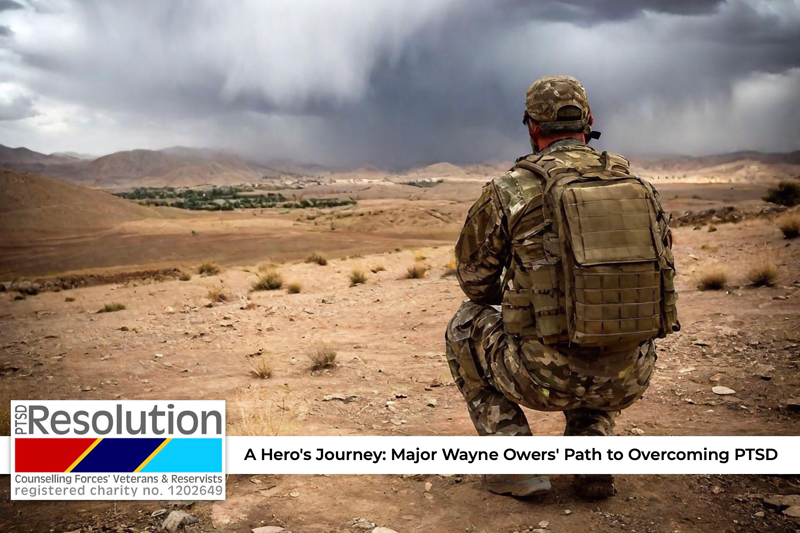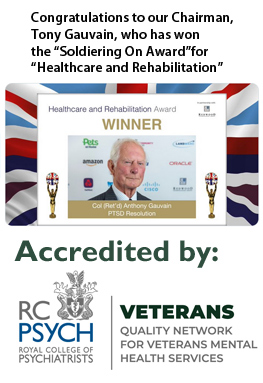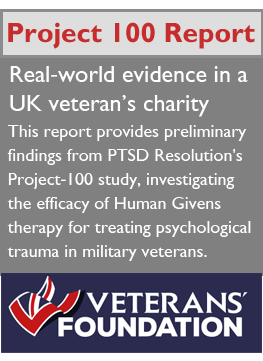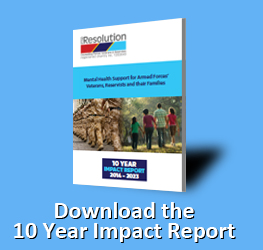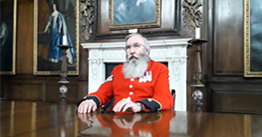A Hero's Journey: Major Wayne Owers' Path to Overcoming PTSD
An article in the Sunday Telegraph, 16th June 2024, reported how Major Wayne Owers, a decorated Afghanistan veteran and a distinguished 27-year career in the Army, rose through the ranks to become a highly respected bomb disposal officer, earning three prestigious honours from the Queen. However, his journey took an unexpected turn when he was diagnosed with post-traumatic stress disorder (PTSD), leading to a prescription for antidepressants and a medical discharge that left him feeling discarded and lost. For years, Major Owers silently carried the weight of his trauma, the invisible wounds of war that haunted him long after leaving the battlefield. The pervasive sense of dread, nightmares, flashbacks, and anxiety had become his constant companions. Like many veterans, he initially tried to suppress his symptoms, fearing that seeking help would jeopardise his career and reputation. Major Owers' story is not unique. Countless veterans and their families face the challenges of mental health issues post-service, often struggling to access the support they need. The transition from military to civilian life can be daunting, and the invisible scars of war can make it even more challenging. The Helmand Valley, where Major Owers served, was a particularly perilous area, riddled with improvised explosive devices (IEDs) planted by the Taliban. During his deployment, Major Owers led a team of bomb hunters tasked with locating and defusing these lethal weapons. The work was nerve-wracking and dangerous, but his team's success came at a high price. Every member of his team, except Major Owers himself, sustained injuries when a soldier triggered a non-metallic IED during a routine clearance operation. The physical wounds of his team served as a stark reminder of the mental scars Major Owers carried. The traumatic events surrounding the blast that injured his comrades left an indelible mark on his psyche, one he tried desperately to bury. Returning home provided temporary solace, but the symptoms of PTSD gradually crept into his daily life, affecting his work and relationships. PTSD Resolution This is where PTSD Resolution can help, offering a lifeline to veterans and their families. Charles Highett, CEO of the charity, emphasises its mission: "We are committed to providing free, effective, and prompt therapy to veterans, reservists, and their families. Our network of 200 therapists nationwide ensures that help is always within reach." PTSD Resolution's approach is unique in many ways. The charity is accredited by the Royal College of Psychiatrists, a testament to the quality of its services. It provides therapy to veterans with addiction issues and those who are in prison, recognising that mental health support should be accessible to all. Furthermore, PTSD Resolution extends its services to family members, acknowledging the ripple effect of trauma on partners and children. For Major Owers, the turning point came when he connected with PTSD Resolution and its network of Human Givens Institute (HGI) therapists. The Rewind Technique, an innovative therapeutic approach, helped him reprocess his traumatic memories and find relief from his symptoms. As Colonel Tony Gauvain (Retired), Chairman of PTSD Resolution, explains, "The Rewind Technique is a powerful tool in treating PTSD. By helping veterans reframe their experiences and tap into their innate resources, we can facilitate profound healing and transformation." The Rewind Technique involves guiding the individual into a deeply relaxed state, where they can safely revisit and reprocess traumatic memories. By dissociating the emotional charge from the memory and reframing it in a more positive light, the technique helps to alleviate the distressing symptoms associated with PTSD. For Major Owers, this meant focusing on his childhood memories of awe and wonder associated with military helicopters, rather than the traumatic events he witnessed during his service. |
Life Changing Recovery After just six sessions, Major Owers reported a remarkable change in his life. His nightmares subsided, his anxiety diminished, and he found himself able to engage in activities that were once unthinkable. The weight of his trauma had been lifted, and he could finally embrace life again. He says: “I’ve now had six sessions and my life has been transformed. I can honestly say the treatment is revolutionary. My nightmares are subsiding. My OCD has diminished hugely and I no longer get anxious. “I want to get the message out there and tell any veterans or their dependents who still have PTSD to get in touch with PTSD Resolution. They offer free therapy and it has changed my life and many others’ more,” he says. “For the first time in years, I feel happy and contented, like a huge weight has been lifted.” Major Owers' story serves as a beacon of hope for the countless veterans and their families who are still struggling with the invisible wounds of war. It is a reminder that help is available and that healing is possible. As Charles Highett notes, "We have seen time and again the transformative power of effective therapy. Our goal is to ensure that no veteran or family member has to suffer in silence." An MoD source told the Sunday Telegraph: “The armed forces take mental health very seriously and do offer therapy. But they can’t offer the bespoke services offered by charities like PTSD Resolution.” PTSD Resolution's unique operating model ensures that funds are directed where they are needed most—towards delivering therapy and essential research and public information. With a lean structure and no salaried staff or assets, the charity maximises its impact, having already supported over 4,000 referrals to date. On average, clients require just seven sessions to reach a point where they and their therapist agree that no further therapy is needed, highlighting the effectiveness of PTSD Resolution's approach. Veterans with Addiction Issues and In Prison The charity's commitment to providing therapy to veterans and their families extends beyond the confines of traditional settings. They offer support to those with addiction issues and individuals who are in prison, recognising that mental health challenges can manifest in various ways and that everyone deserves access to help. By working with family members, including partners and children, PTSD Resolution acknowledges the far-reaching impact of trauma and the importance of healing the entire family unit. For organisations looking to support the mental welfare of their non-veteran staff, PTSD Resolution can also provide assistance by arrangement. This highlights the charity's flexibility and willingness to collaborate with others to promote mental well-being in various contexts. If you or someone you know is a veteran or a family member struggling with mental health issues, PTSD Resolution is here to help. Their network of therapists is ready to provide free, effective, and confidential support, either in-person, by phone, or via the internet. Don't hesitate to reach out. Visit www.ptsdresolution.org or call 0300 302 0551 to learn more about the services available and to take the first step towards healing and reclaiming your life. Together, we can ensure that no hero is left behind on their journey to overcome the invisible wounds of war. |
For more information on our charity and the support we provide, please visit our website at www.ptsdresolution.org
www.PTSDresolution.org
Email: contact@ptsdresolution.org
Phone: 0845 021 7873
| We publish a regular Newsletter that contains lots of information about people that we have helped, the work that we do etc. If you would like to receive it, please Click Here to sign up to the Newsletter List. |
Contact: 0300 302 0551 or contact@ptsdresolution.org . www.ptsdresolution.org

